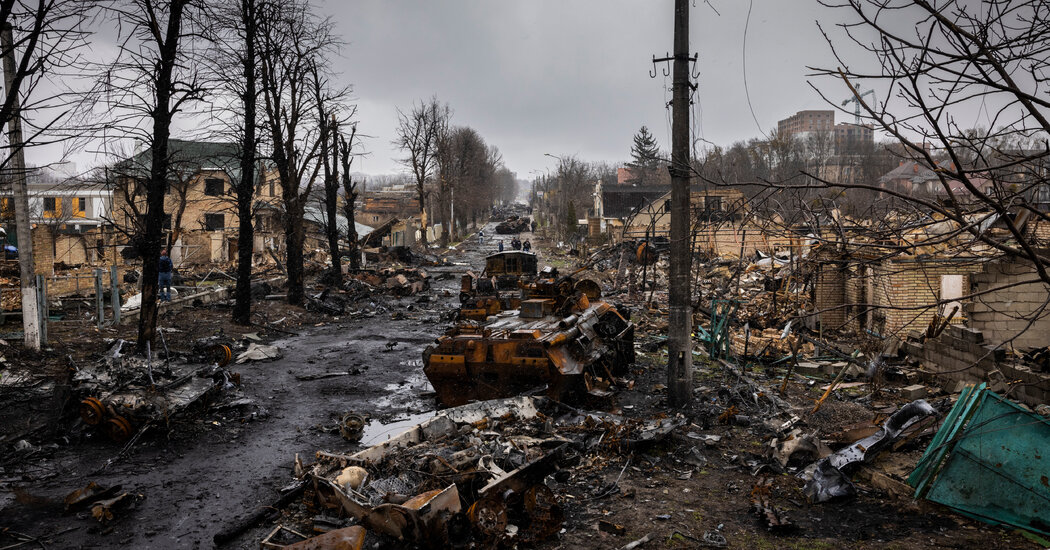The United States tried to stop Ukraine from killing a top Russian general. American officials found out that Gen. Valery Gerasimov was planning a trip to the front lines, but withheld the information from the Ukrainians, worried that an attempt on his life could lead to a war between the United States and Russia. The Ukrainians learned of the trip anyway. After an internal debate, Washington took the extraordinary step of asking Ukraine to call off an attack — only to be told that the Ukrainians had already launched it. Dozens of Russian soldiers were said to have been killed. General Gerasimov wasn’t one of them.
Why we published an obscenity. Because the tone of a Times article should be thoughtful and restrained, we generally avoid publishing vulgarities. However, we do publish offensive language in exceptional cases, as when an important public figure uses such language in a public setting, or where the use of the words themselves is the story.
A senior Russian official told the C.I.A. director, William J. Burns, last month that Russia would not give up, no matter how many of its soldiers were killed or injured. One NATO member is warning allies that Mr. Putin might accept the death or injury of as many as 300,000 Russian troops — roughly three times his estimated losses so far. Before the war, when Mr. Burns warned Russia not to invade Ukraine, another senior Russian official said Russia’s military was strong enough to stand up even to the Americans.
Days into the invasion, Mr. Putin told Israel’s leader that the Ukrainians had turned out to be “tougher than I was told.” But, he warned the leader, Prime Minister Naftali Bennett, “we are a big country and we have patience.” Earlier, in October 2021, during his first meeting with Mr. Bennett, Mr. Putin had railed against President Volodymyr Zelensky of Ukraine: “What kind of Jew is he? He’s an enabler of Nazism.”
Invading Russian soldiers used their cellphones to call home, enabling the Ukrainian military to find and kill them. Phone intercepts obtained by The Times showed the bitterness Russian soldiers felt toward their own commanders. “They’re preparing you to be cannon fodder,” one soldier said. Another described a commander warning him he could be prosecuted for leaving his position, only for the commander to flee when shelling began. “His wheels didn’t even get stuck in the mud,” the soldier said.
The day of the invasion, Mr. Putin set a trap for Russian business tycoons, putting them on television “to tar everyone there,” as one of them described it. Indeed, the businessmen present were all hit by Western sanctions in the months that followed. Even so, another billionaire at the Kremlin that day, Andrey Melnichenko, was defiant, insisting sanctions would not make him turn against Mr. Putin. “In textbooks, they call this political terrorism,” he said.



